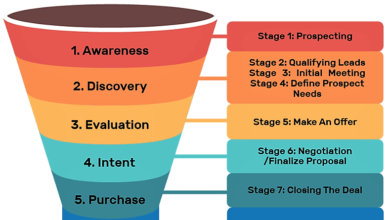Blockchain Technology – What It Is, How It Works, and What It Could Mean for Your Business
The blockchain is an innovative version of the digital ledger that records transactions across a peer-to-peer network. These transactions are secure and transparent, which makes them perfect for keeping tabs on assets such as money, property, and stock. But most importantly, the blockchain is decentralized — every transaction on it is recorded publicly and also linked to a unique ID. This means that if someone else wants to start using your services or products without giving you any notice first, your blockchain business risks being shutdown quickly and decisively. In other words: The blockchain is a lot more secure than traditional online payment and money-transfer services like PayPal or Western Union. So what’s stopping small businesses from implementing it in their business model?
What is the Blockchain?
The blockchain is a decentralized, distributed, and public digital ledger that acts as a decentralized public record of all transactions on the network. It is managed and operated by a network of computers with each machine having a unique public key that allows them to verify and add new entries to the blockchain. The blockchain is implemented as an open-source platform that allows anyone to create a decentralized public ledger that will record all Bitcoin transactions. The blockchain platform can be used to store information such as money and property transactions, as well as create a digital ledger for applications such as e-commerce where a store owner can link their store signs with their online store pages to guarantee a certain amount of sales.
How Does the Blockchain Work?
The basic concept of blockchain is that each transaction on the network is recorded on an decentralized digital ledger called a blockchain. All the data that is created on the blockchain is distributed and verified by a network of computers using shared public key emissions. The distributed data, including the verified transaction data, is stored on the blockchain and is fully accessible to all.
Benefits of Using a Blockchain Business Model
– Data privacy: The data stored on the blockchain is verified and distributed among all the computers on the network. This data is entirely private and cannot be altered even if someone compromising the network does manage to get past all the computers on the network. – Trust and confidence: The distributed data and trusted consensus among the network of computers allows businesses to build trust and confidence in the system. This trust is triggered by the public key that goes with the transaction and is used to authenticate the user. The blockchain acts as a record of the transactions, so the data on the blockchain is the same data that is being stored on the device. – Security: The distributed data and shared key emissions make the blockchain virtually immune to tampering or changes. This makes blockchain technology suitable for use in an environment with data-driven decisions such as an enterprise processing server or a management Consul-based server.
Pros of a Blockchain Business Model
– Data privacy: The distributed data and verified transaction data stored on the blockchain are completely private. This data can be used to prevent or detect any kind of identity theft. – Trust and confidence: The distributed data and shared key emissions give businesses a level of confidence in their data as they are believed to be accurate. This level of trust is crucial for a number of reasons. For one, it allows businesses to reduce the risk that someone could fraudulently modify or remove data. – Security: The distributed data and trusted consensus among the network of computers means that the blockchain is effectively secure. This is because no two computers on the network will have the same public key. – Security: The distributed data and shared key emissions make the blockchain virtually immune to tampering or changes. This makes blockchain technology suitable for use in an environment with data-driven decisions such as an enterprise processing server or a management Consul-based server. – Data privacy: The distributed data and shared key emissions give businesses a level of privacy because they are not showing the data to anybody else. – Trust and confidence: The distributed data and shared key emissions give businesses a level of confidence in their data as they are believed to be accurate. This level of confidence is critical for businesses that need to build long-term relationships with customers. – Consulate-based server: This is the heart of an enterprise blockchain implementation. It stores the public key emissions and data, as well as associated data in a shared database that is accessible to all the computers on the network.
Cons of a Blockchain Business Model
– Trust and confidence: The distributed data and shared key emissions give businesses a level of trust that has been desperately needed in the blockchain system. Businesses need to build confidence in the data because otherwise they won’t be able to build long-term relationships with customers or make payments securely. – Security: The distributed data and shared key emissions mean that the blockchain system is virtually secure. This is because no two computers on the network will have the same public key. This essentially makes the blockchain too safe to use for more nefarious activities such as cyber attacks. – Security: The distributed data and shared key emissions make the blockchain technology suitable for use in an environment with data-driven decisions such as an enterprise processing server or a management Consul-based server.
Final Words: Should You Use a blockchain in Your Industry?
Yes! Blockchain technology could revolutionize the entire financial services industry. It could make the process of approval for all futures and options products easier, more efficient and traceable, as well as end the so-called ‘shadow banking’ practice where firms issue debt without anybody knowing they have actually repaid this loan. What’s even more amazing is that the entire concept of blockchain has been around for years and people have been using it for decades. Why is it that businesses have been waiting so long to adopt the blockchain platform? Because they believe that it could revolutionize their industry, that it could help them build Trust and Confidence with their customers, and that it could create an environment for smaller businesses to thrive.






